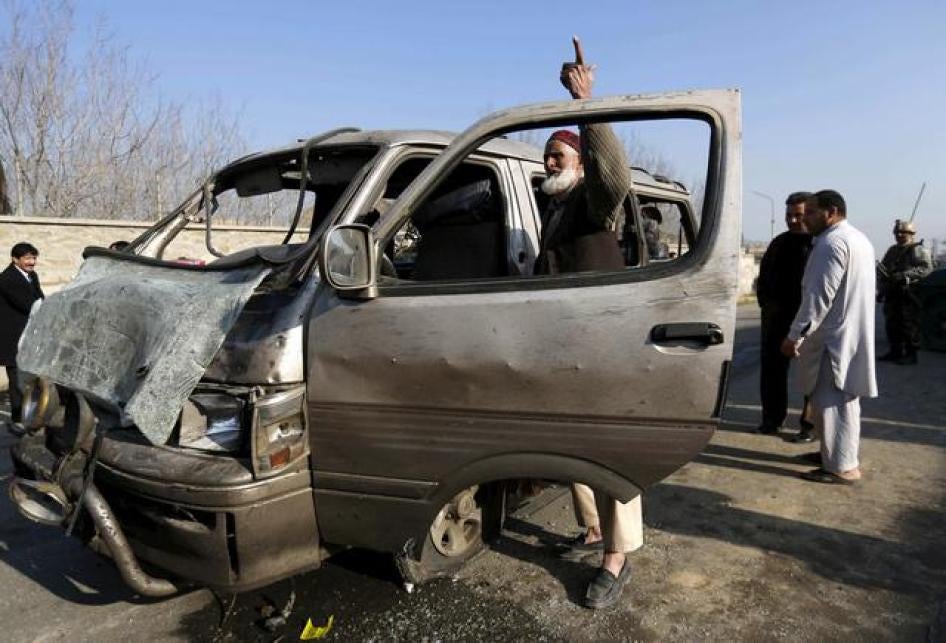Things are getting worse in Afghanistan.
This won’t be news to those who suffer the daily horror of suicide attacks, bombings, kidnappings, and other atrocities. But the latest six-monthly report by the United Nations Assistance Mission to Afghanistan (UNAMA) makes grim reading all the same. It charts a record-setting rise in civilian deaths and injuries, including a 37 percent rise in casualties among women, and a 14 percent rise among children. In 2015, one in four victims of the armed conflict was a child.
As in other years, the Taliban are the main culprit. Despite Taliban claims that protection of civilians was one of their core objectives, the armed group continues to exclude aid workers and civil servants from its definition of civilian, and then pursues a strategy of unlawful suicide bombings in civilian areas (up 16 percent over 2014) and targeted attacks against members of civil society, particularly journalists and other media workers. The UNAMA report exposes the Taliban's contempt for the most fundamental principle of international humanitarian law, or the laws of war: the prohibition of deliberate attacks on civilians.
Civilian casualties from government military operations have also risen. This raises concerns that as Afghan armed forces’ ground engagements and air attacks increase, not all necessary precautions are being taken to minimize civilian harm. There is no evidence that commanders responsible for abuses are being held accountable.
At the end of February, direct talks between the Afghan government and the Taliban are due to take place in Islamabad, the next step in a process to discuss a possible roadmap toward a political settlement. This effort has yet to bring relief to Afghan civilians caught in the daily violence. But if the Taliban wish to be seen as serious about seeking peace, they should state unequivocally that they will no longer target civilians as defined by the laws of war, and then match that promise by changing the behavior of their forces on the ground.
The Afghan government should also take substantive measures to change its forces’ battlefield conduct. The military is developing a national strategy to mitigate civilian harm, but this should include clear rules of engagement and directives, particularly in limiting the use of artillery, bombs, and other weapons with wide explosive effects in populated areas.
The government should also stop arming militias, including national “uprising” forces, which fall outside the regular chain of command. Such militias have a dismal record of abuse, and they have exacerbated tensions rather than provide security for the civilian population.
Unless both sides take urgently needed corrective measures, the next UNAMA report for the first six months of 2016 will likely reflect an even higher toll of civilian suffering.









